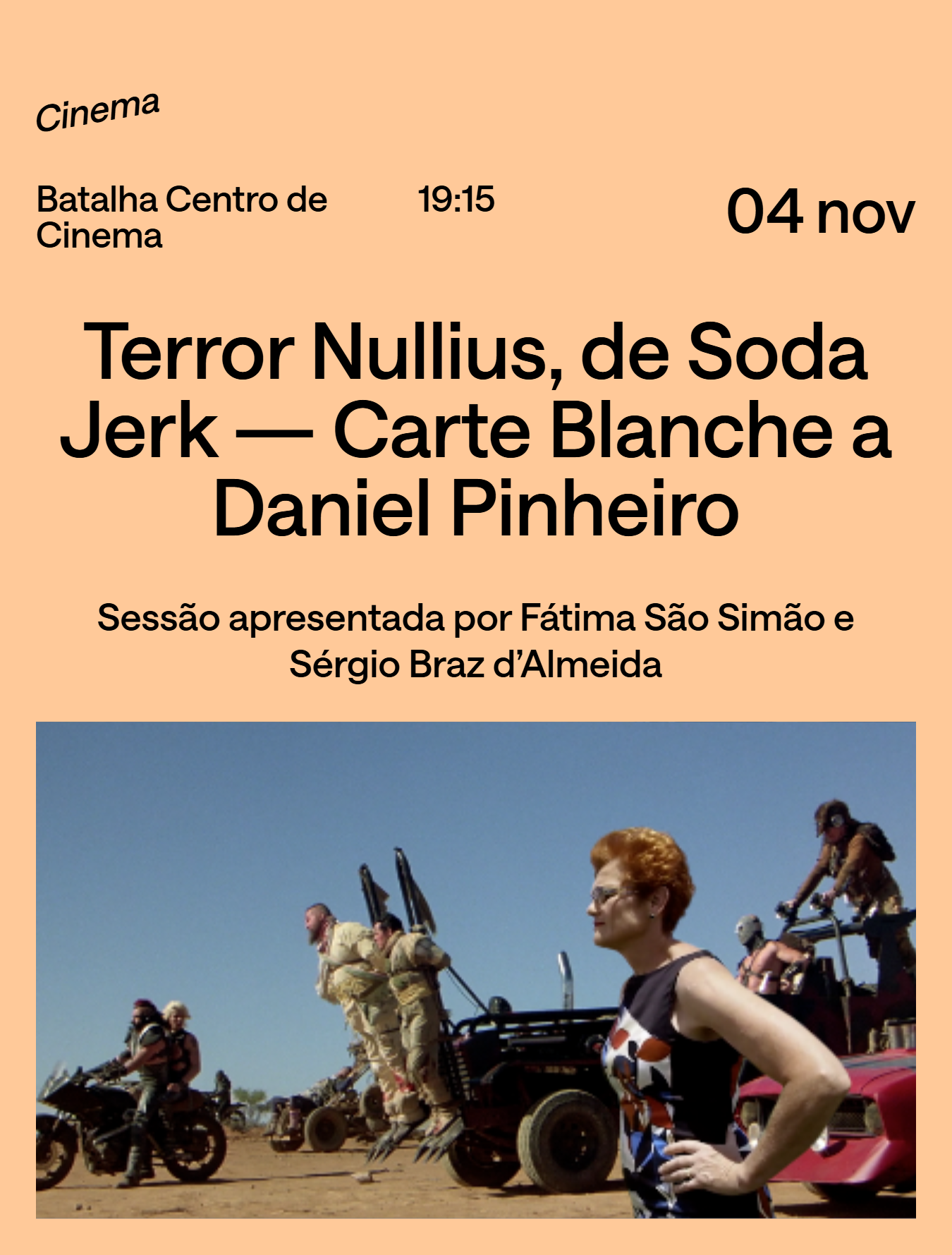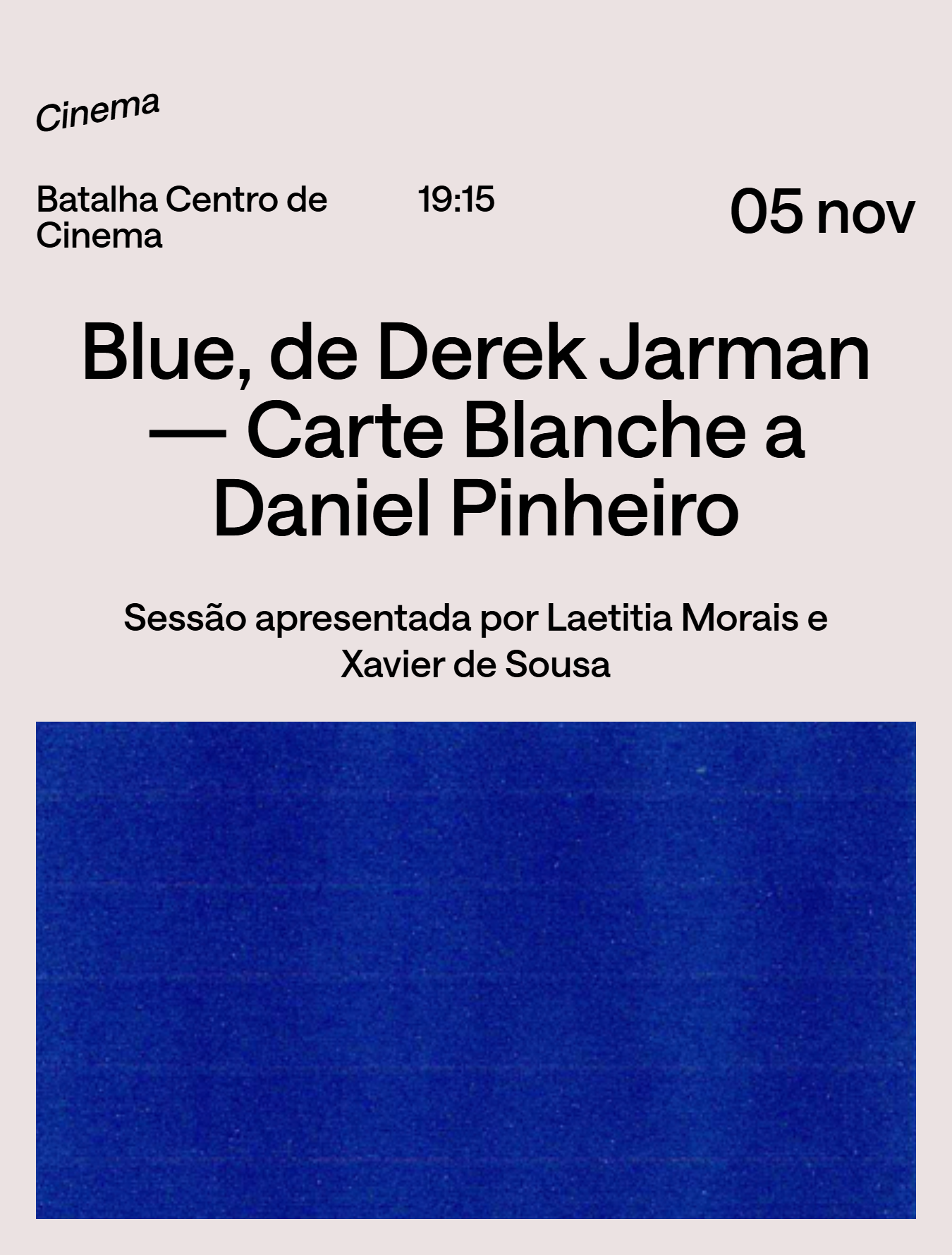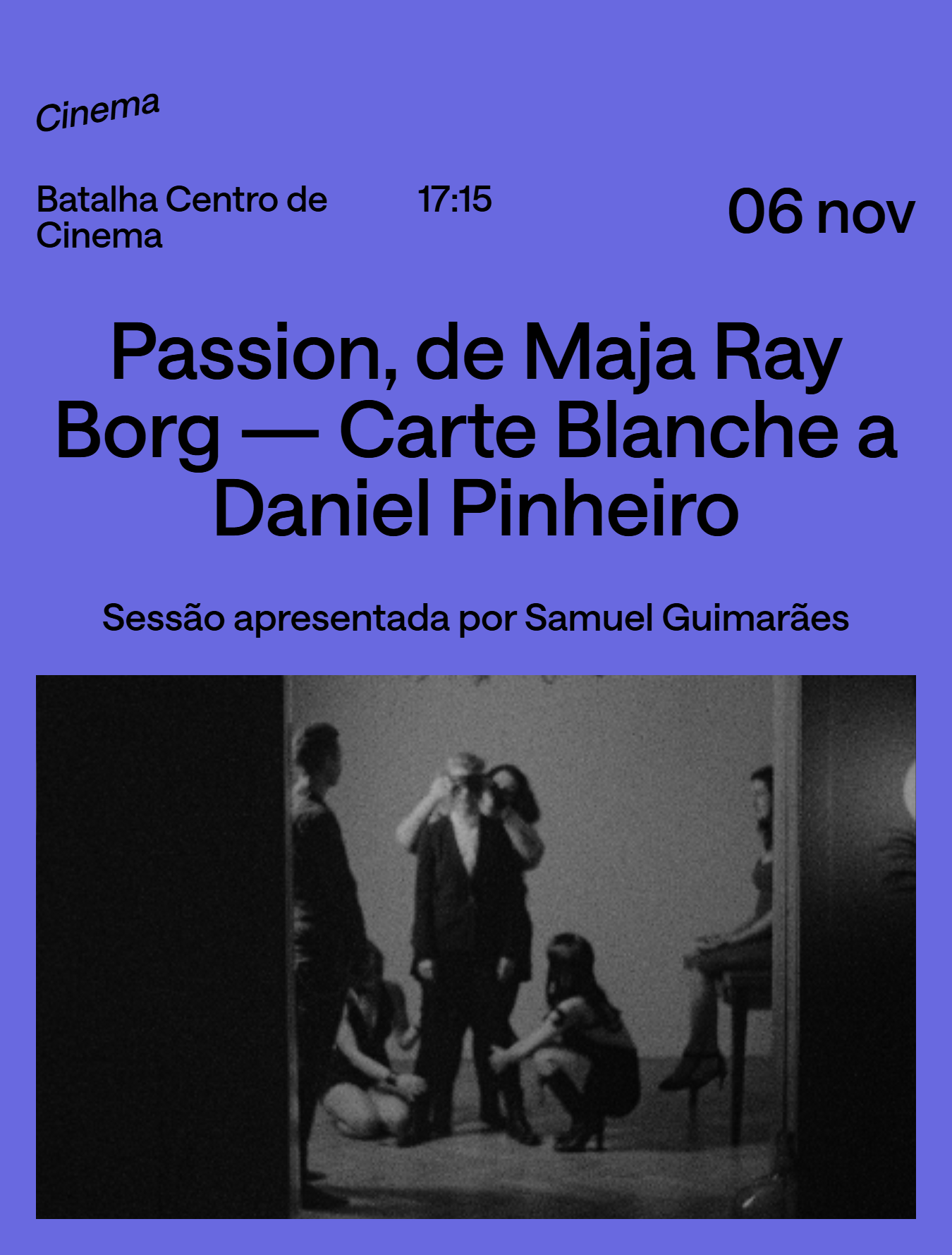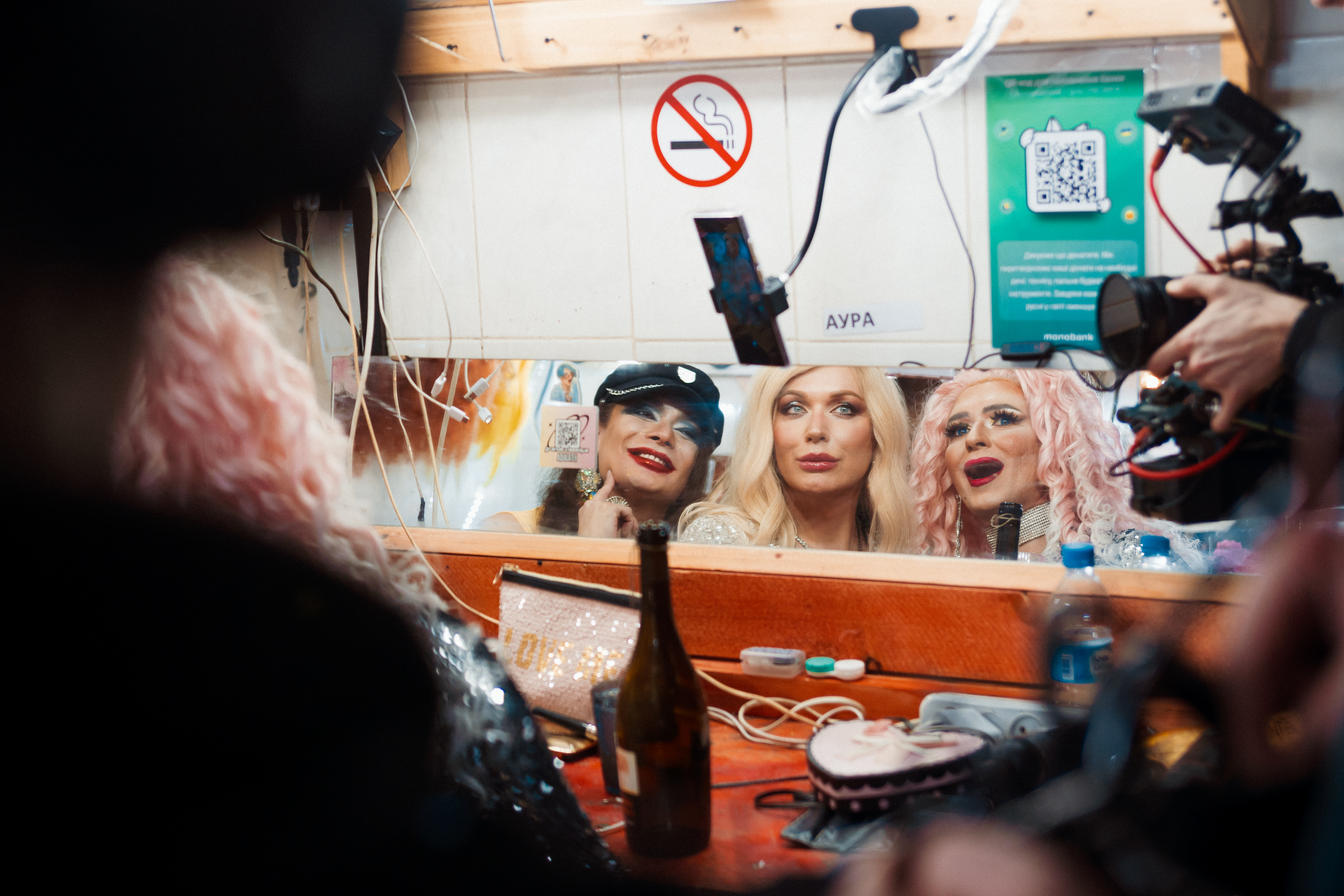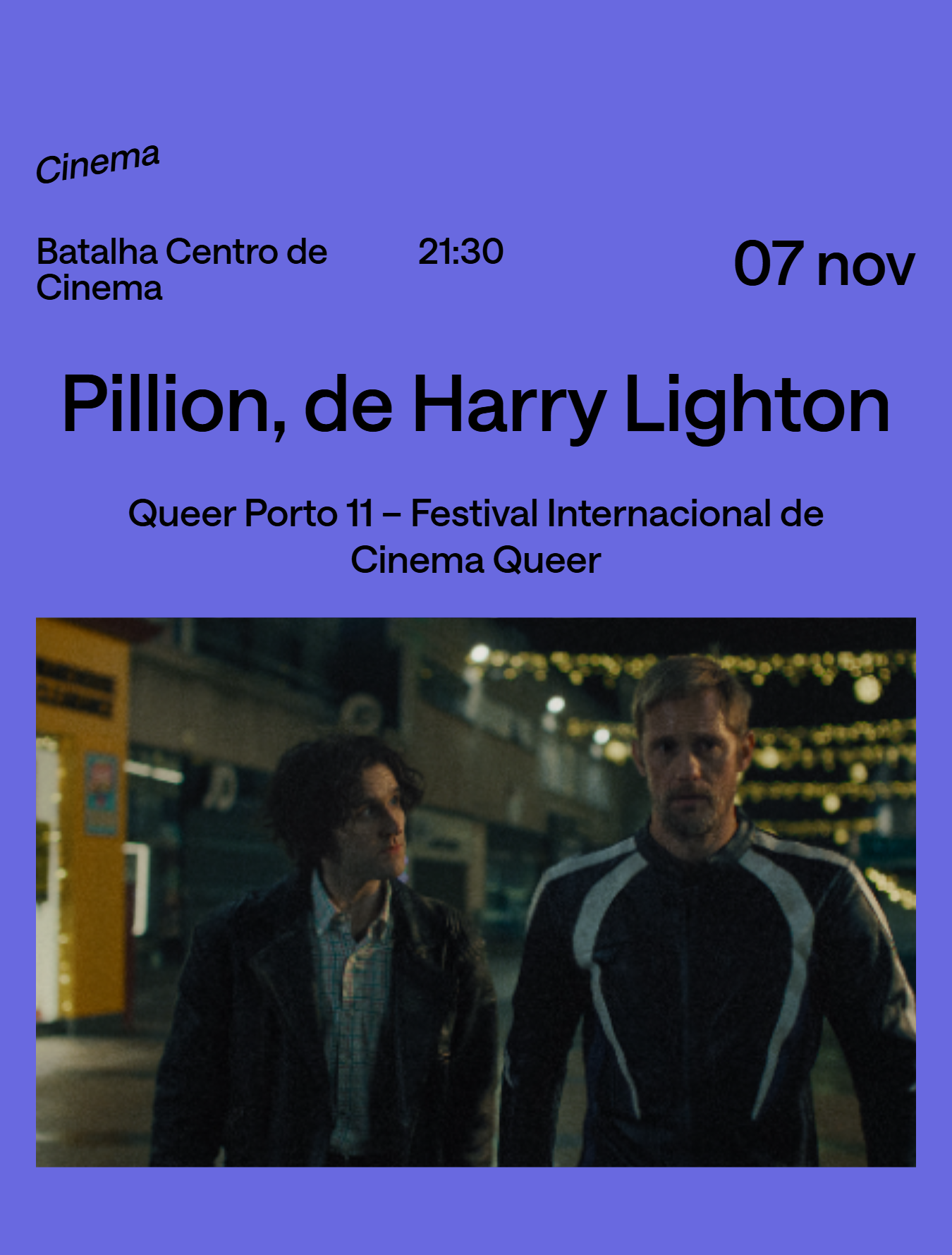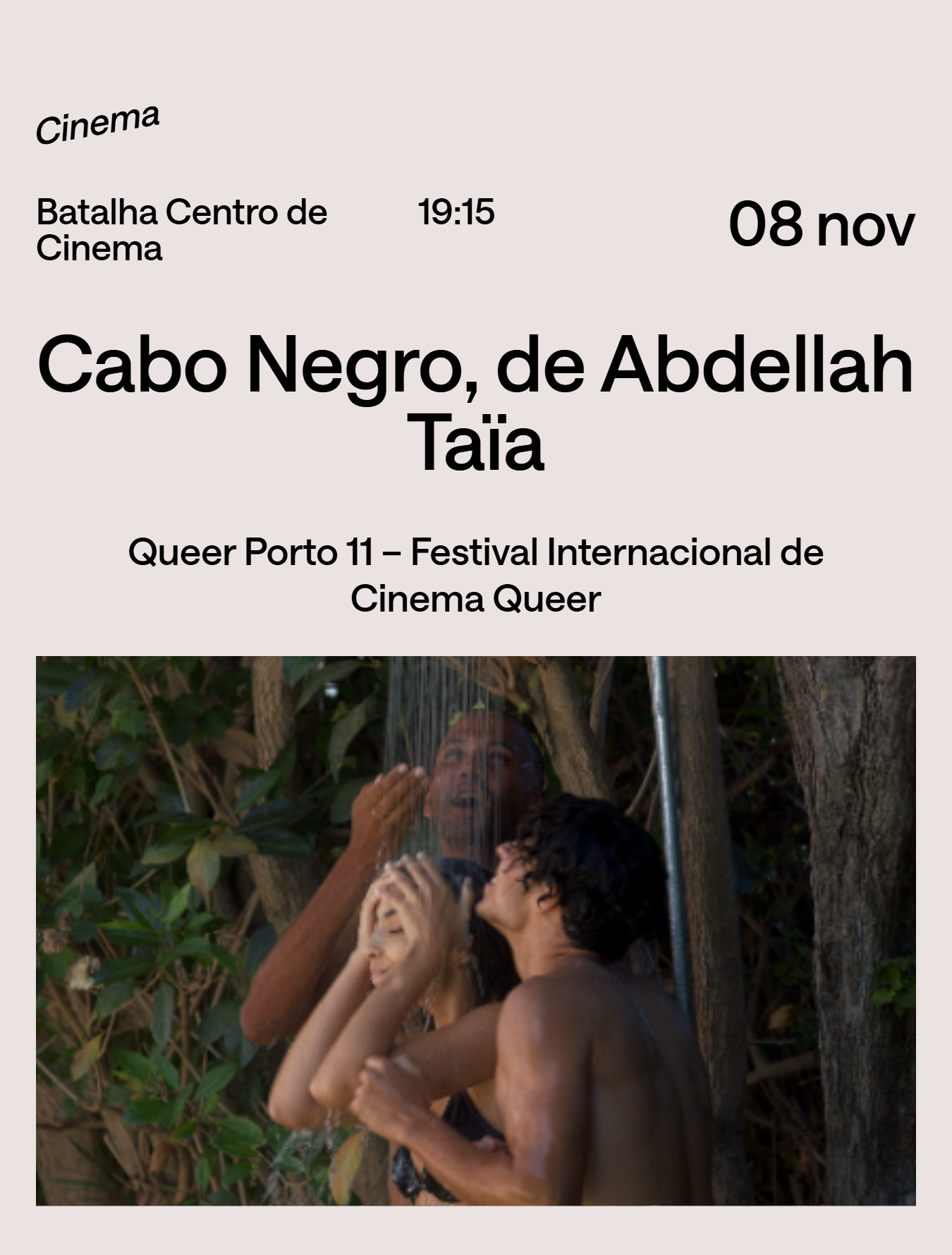EN

The 11th edition of Queer Porto — International Queer Film Festival, an autonomous body of Queer Lisboa, kicks off on November 4. This year's edition is marked by the loss of Daniel Pinheiro, a familiar face on the Porto cultural scene and a presence since the first edition of Queer Porto. We spoke with João Ferreira, artistic director of the festival, about the places where this year's edition comes from.
Agenda Porto: It is impossible to talk about Queer Porto without mentioning a loss to Queer, and to Porto.
João Ferreira: Losing Daniel at the beginning of the year was a huge shock to all of us, in a very personal way. It was very clear from the outset that we had to do something beyond just remembering him on the opening nights of the festival. We spent a few months thinking about this, because Daniel joined Queer Porto for the first time as a director, he had a very rich and transdisciplinary career, he worked in many areas. The first idea was to try to find a way to demonstrate this, but we ended up coming up with the idea of showing what he did with us at the festival, which was programming. This turned out not to be very difficult, because we all remembered the films he was most enthusiastic about, the conversations we had had with him about these films. It is a relatively small program, but we feel that it represents Daniel as a programmer, as someone who loved cinema and enjoyed doing this work here.
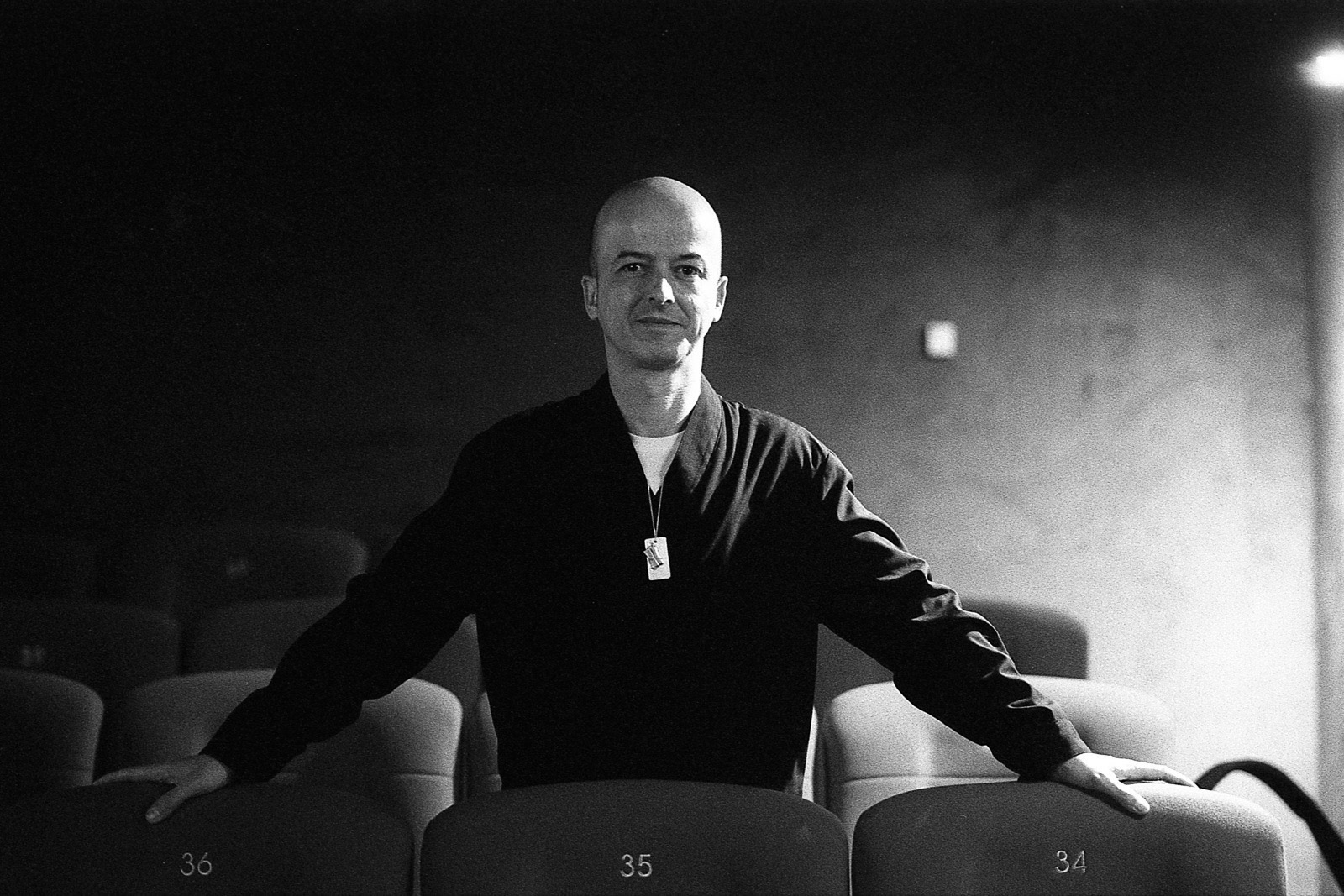
João Ferreira © Charles Pietri
AP: So there is a memory of yours with Daniel associated with each film chosen.
JF: Absolutely. And with this we also wanted to give the tribute a more intimate character, to show that unifying side that Daniel had. That's why we also invited people from his inner circle to present each film. It didn't make sense for it to be just us from Queer Porto, it would have been a little closed, a little redundant. So, the idea is to contrast Daniel's perspective with that of the people in his life who are not at the festival.
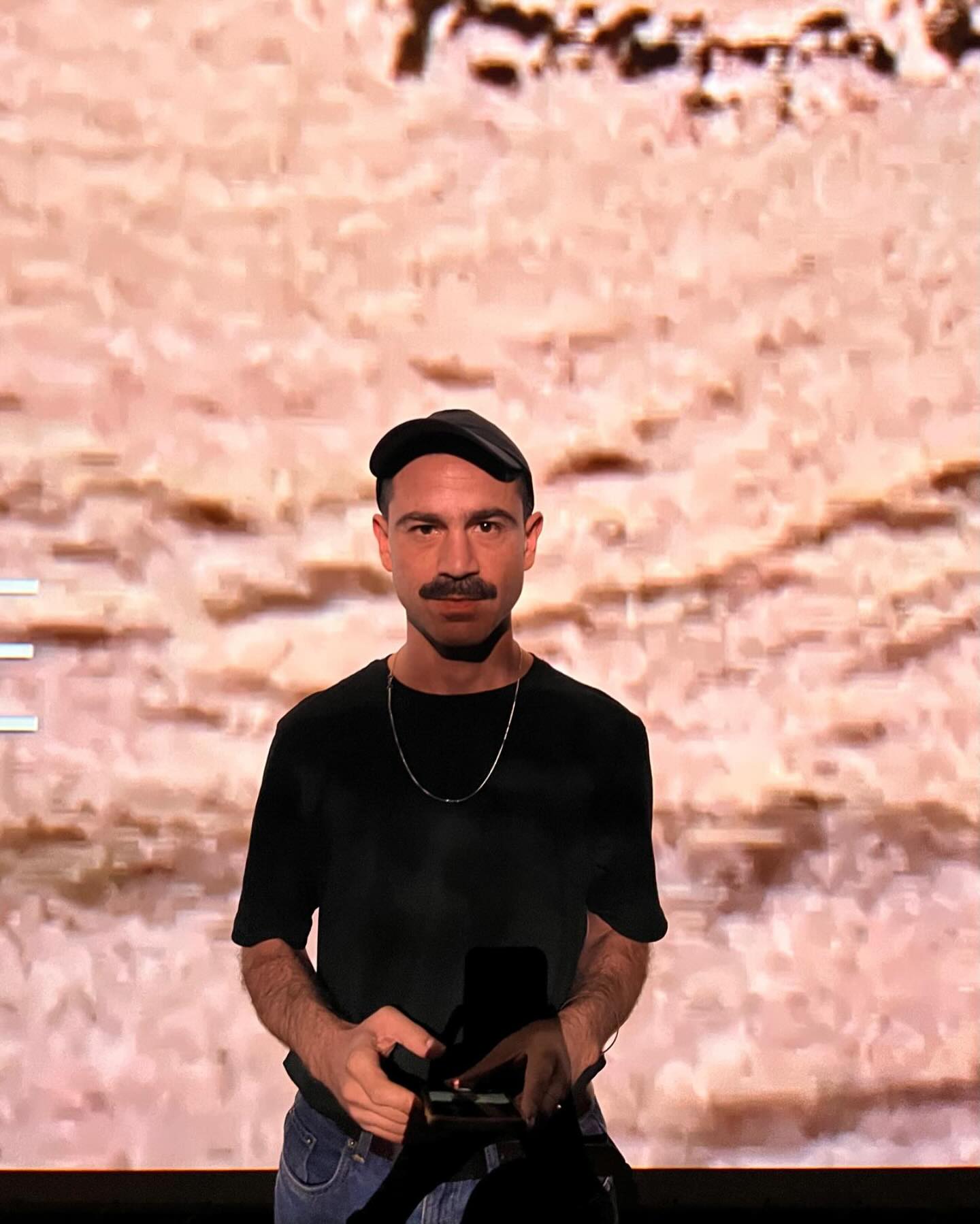
Daniel Pinheiro © DR
AP: This edition features the promotion of the “Queer Resistance” program to a section. Is this a sign of the times?
JF: Exactly. When “Queer Resistance” emerged as a program last year, it came from our political and social concerns, with films that looked at the genocide in Gaza, the war in Ukraine, and the growth of the far right in Europe and the United States. Until then, there had been a progression in attitudes towards queer communities — and suddenly we realized that none of this is guaranteed. This year, the program presents a pessimistic scenario for the future—it's sad to say this, but in the 2026 edition we will once again consider this program as a section of the festival. But in these films we also see a very beautiful side of resistance and struggle, in the creation of utopias and in imagining better futures.
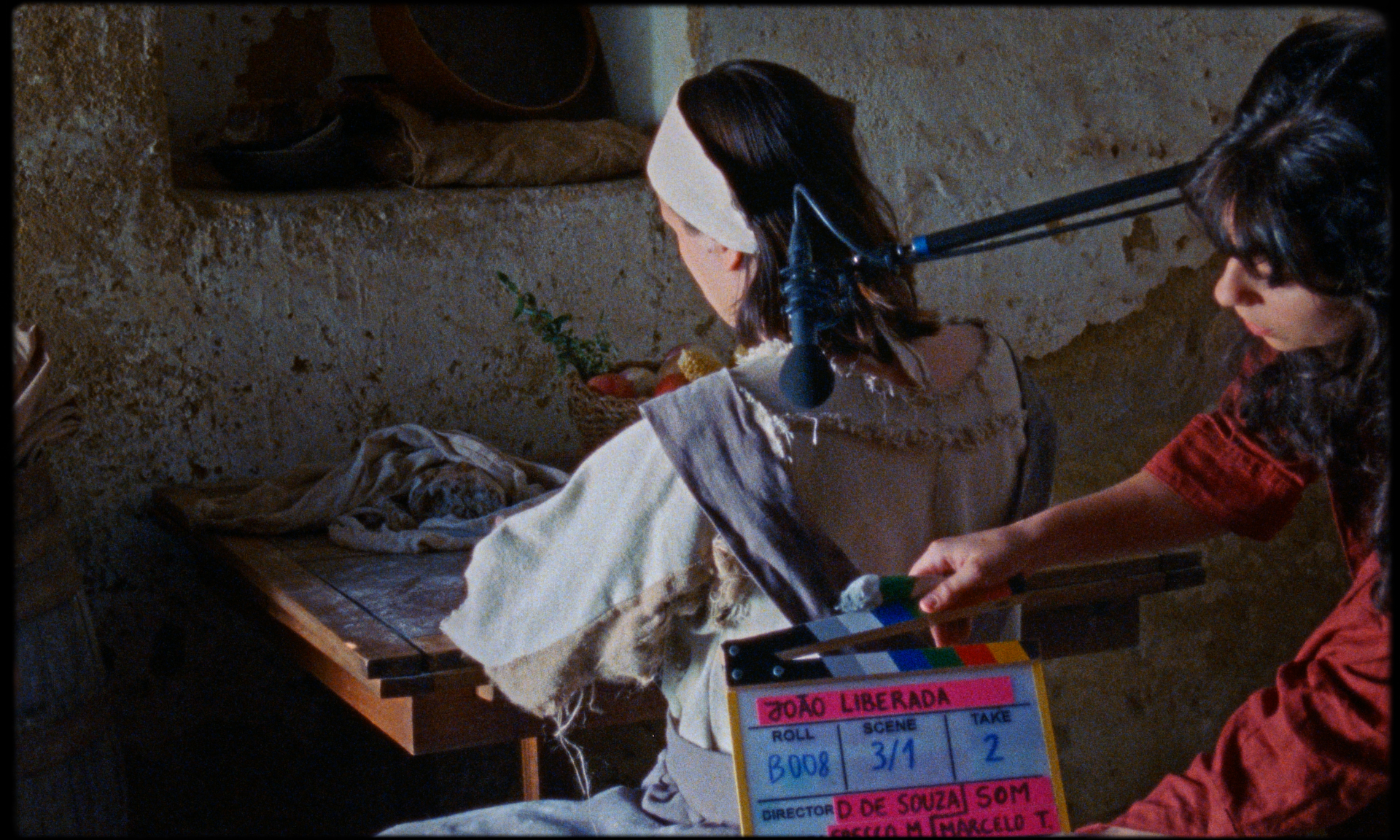
Duas Vezes João Liberada, da realizadora Paula Tomás Marques — ler aqui a entrevista com a realizadora na reportagem da Agenda Porto sobre novos cineastas portuenses
AP: The opening film is by a director from Porto, Paula Tomás Marques. Would you like to tell us a little about this choice?
JF: Duas Vezes João Liberada is a film I had the opportunity to see at its world premiere in Berlin in February this year. I was already familiar with Paula's work in short films, but this film was a complete surprise for all of us. On the activist side, by bringing trans people into the production, both in front of and behind the cameras. Paula Tomás Marques has been fundamental in this work on the national scene. Then, on the historical rescue side, which she had already worked on in some short films, an idea of reinterpreting history and doing justice to figures who were in some way adulterated or erased in their identity. And finally, it is a film that was made with almost no funding, and what we see is a true miracle—to be able to make such a cohesive work, with aesthetic and technical quality. This film has already been shown in Lisbon, but we think it makes perfect sense and deserves to have its first screening in Porto as the opening film.
AP: Queer recently celebrated its tenth anniversary in Porto. What do you think distinguishes it from Queer Lisboa?
JF: At the time, it was Paulo Cunha e Silva who encouraged us to create Queer Porto, and it was immediately held in various venues—unlike Lisbon, where we are limited to Cinema São Jorge and Cinemateca. So Queer Porto ended up being born with a more transdisciplinary idea, also as a way of bringing the city's different artistic communities to the festival.
AP: That was a more demanding model.
JF: A more demanding model, and more expensive in terms of organization. Over time, we tried to keep these ideas but limit them a little more to cinema. In other words, with the films we chose, which were different from those we presented in Lisbon, we always tried to maintain this transdisciplinary character that could attract different people. But also, that they meet the needs of the different audiences in the theaters. We always think about what makes sense for the audiences at Casa Comum, Batalha, or Passos Manuel. Basically, I always feel that these developments are organic—they don't depend so much on us, our job is much more about observing what people are doing and experiencing.

O Queer Porto vai ter a sua festa de abertura no Bar of Soap, e festa de encerramento no Passos Manuel
AP: Now I would like to propose an exercise that no artistic director likes, which would be for you to give three suggestions for the program.
JF: That's true, that's always difficult!
There is a film that I think will appeal to a lot of people, which is Harry Lighton's Pillion. It recently premiered at the BFI film festival in London, and we also screened it at Queer Lisboa. It's a film that I particularly like, and it's about BDSM, power relations, and domination.
This is a very interesting theme because it can be extrapolated to other areas of our lives, even politics—because, ultimately, it deals with the idea of hierarchy. And this film approaches this theme in a rather subversive way, in the sense that it explores how the more submissive side can have power.
There is also a film that I really like, outside of the competition, which is Cabo Negro, by Abdellah Taïa. He is a director that I really appreciate, and we have already programmed some of his works.
He is a very unpretentious director who likes to create an atmosphere in which to tell a story in a very direct way. He talks a lot about youth, particularly Moroccan youth, since that is where he comes from, even though he is now based in France. And that is something we value, a perspective that comes from within, not from outside.
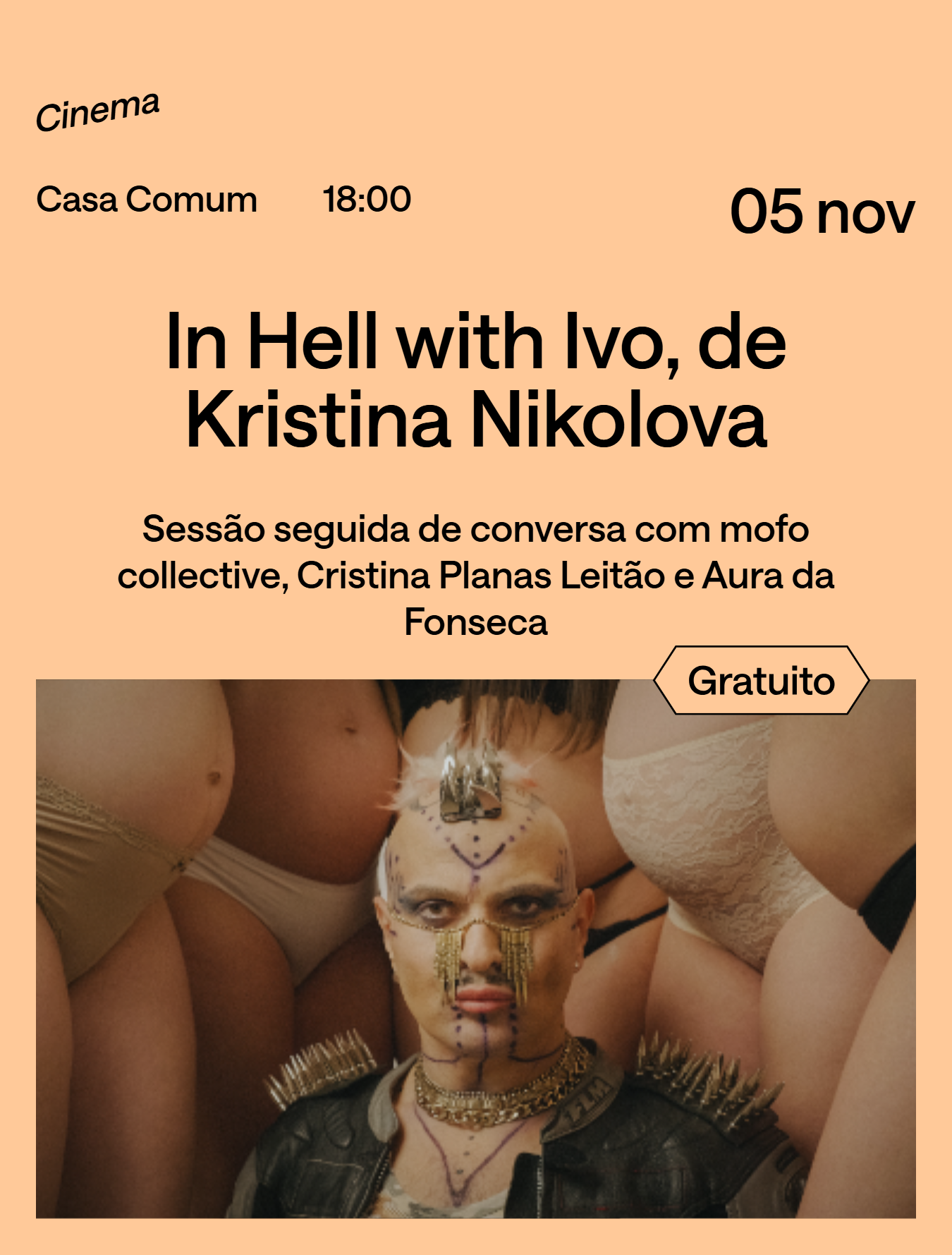
Finally, I would like to highlight a documentary that is part of the Queer Resistance section, which is In Hell With Ivo, by Kristina Nikolova.
It is a film that focuses on a topic that is very dear to me, which is mental health, but also mixes in a political side. It follows the performer Ivo Dimchev, who is Bulgarian but has achieved some notoriety outside his country, particularly in the United States. He is an artist who deals with political issues, even within his family, which is far-right. But he also confronts ghosts related to depression. We found it an important perspective because it offers not only interpretations but also solutions.
AP: In closing, what would you say someone who has never been to a Queer Porto screening can expect?
JF: There's one thing I've seen hundreds, if not thousands, of times, which is people being absolutely surprised at how represented they feel. I think that for those who don't usually go, there is a fear of not seeing themselves in what they are watching, but these films speak to everyone because they deal with themes that are most essential to the human condition. And I can't help but emphasize the social aspect among the audience, in a safe and loving space. This is something that often surprises people in a positive way.
Share
FB
X
WA
LINK


